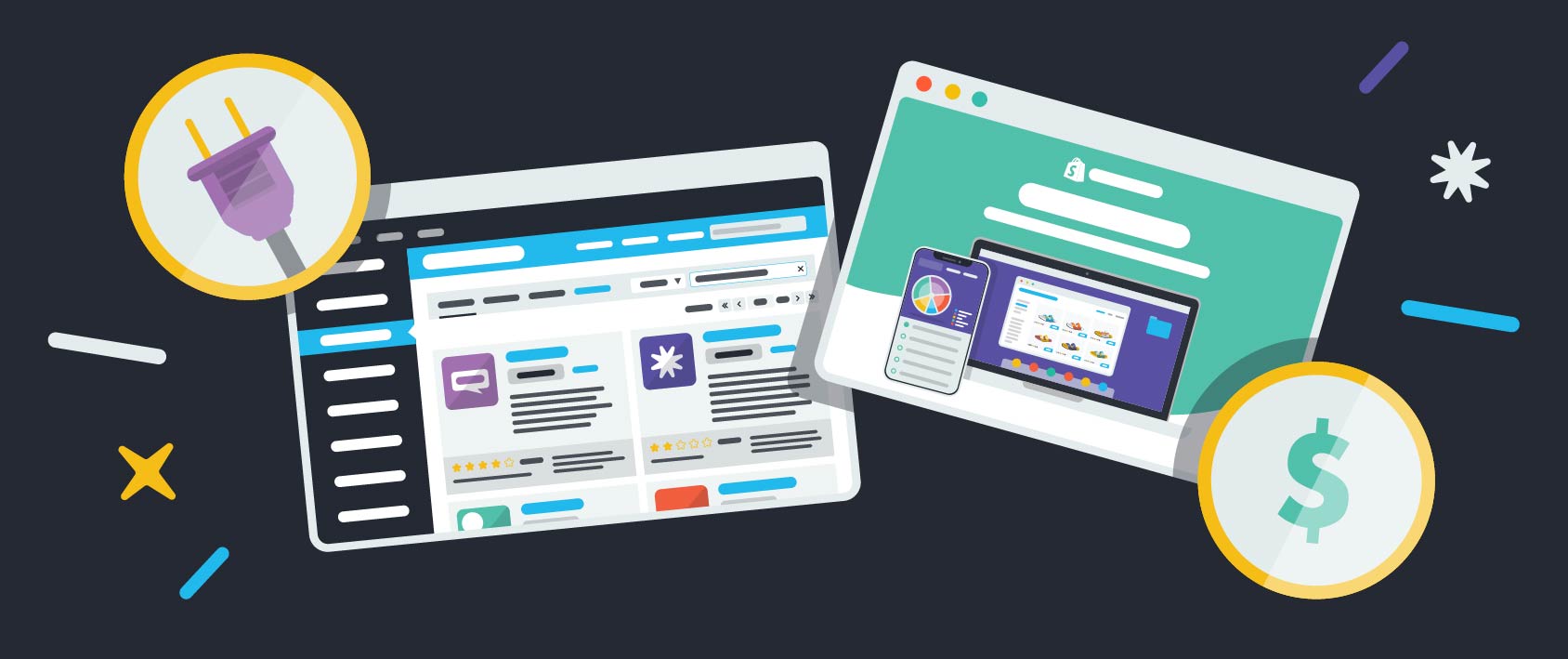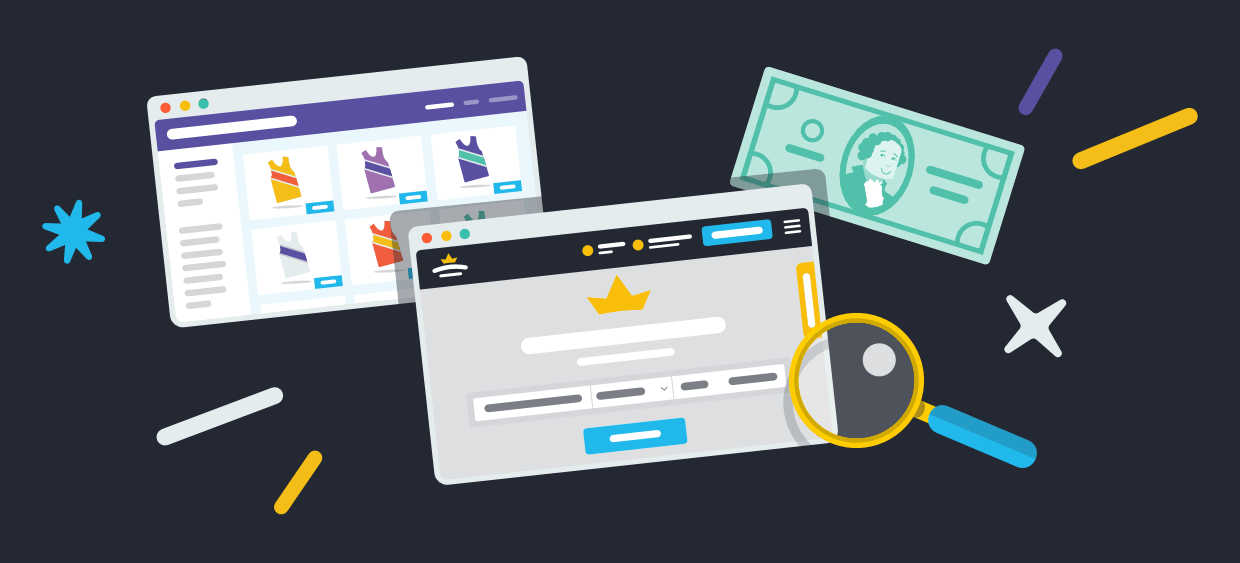
How to Buy an Ecommerce Business for the Right Price
When you see the growth of ecommerce in the last few years, it is no surprise that many entrepreneurs are interested in making their launch into this industry.
You may already be familiar with how you can start an online business with as little as $100, but the ecommerce business model has a few more moving parts for which you should be prepared.
Depending on the cost of goods, manufacturing location, and logistics of your products, you have other expenses that start to add up before you see any type of return. Many entrepreneurs decide to buy a business instead of building one from scratch to skip the dreaded start-up phase, but everyone’s decision varies depending on where they are in their entrepreneurial journey.
That’s where Empire Flippers has helped many entrepreneurs find the right ecommerce business based on their business and personal goals. As the largest curated ecommerce store marketplace, we’ve helped thousands of entrepreneurs buy and sell their ecommerce companies. We know how hard it is to find the right deal, and we want to share with you everything you should know about buying an online business before committing to a purchase.
With over $81 million worth of online businesses sold on our marketplace in 2020, there is no shortage of potential acquisitions just around the corner. Once you have finished this article, our goal is that you will know exactly how ecommerce businesses are valued, how to determine what makes a great deal, and where to buy an ecommerce business for a great price.
Before we dive straight into the due diligence process, we should cover the benefits of buying an ecommerce business that already generates steady cash flow.
To Buy or Not to Buy: That Is the Question
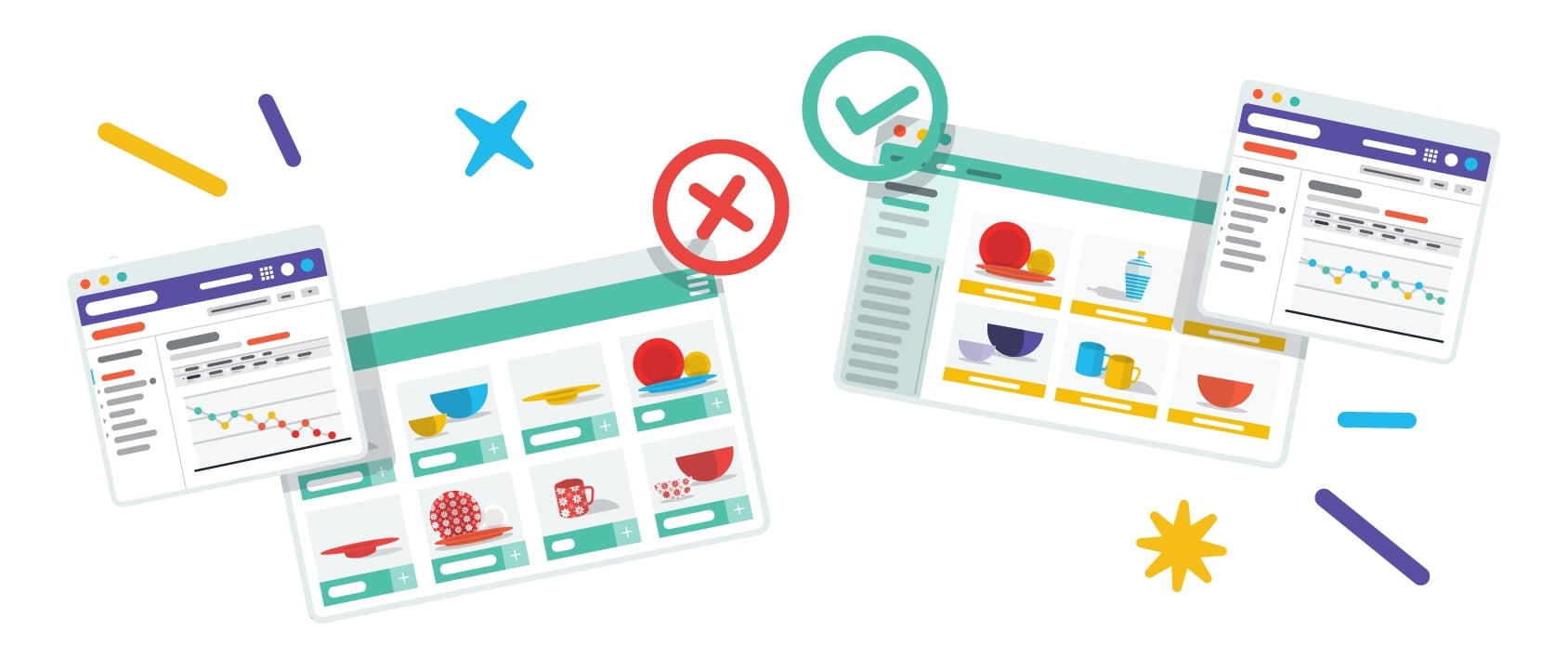
Almost every entrepreneur in the digital space has asked this question at least once in their lifetime. After all, why should you pay such a large amount of money upfront when you can start something from the very beginning with less money?
Making this decision is often based on what your business and personal goals consist of. Everyone will have a different side they lean toward, but it will often depend on the number of hours you’re willing to put toward working on the business.
Let’s break down the pros and cons of both to give you a better idea of what is right for you.
Pros of Building an Ecommerce Business
- Less upfront investment to get started
- Longer relationship history with your manufacturer and suppliers
- Establishing relationships with others in your niche
- A better understanding of what is trending in your industry
Cons of Building an Ecommerce Business
- Much longer time to see any type of return
- Risk of investing in a product that loses demand
- Building a social following from the ground up is hard work
- Pay per click (PPC) will be new data that has not yet been tested
Bootstrapping a startup can be tough. If you don’t already have consistent sales, the process to get to this stage can be long and expensive. Depending on your audience feedback, you may need to make updates to your product(s) to stand out in the niche. You might also run into an issue where your inventory runs out of stock—or even worse, you have inventory collecting storage fees since none of the products are moving off the shelves. These all have the potential to be unexpected expenses for any ecommerce startup that many newcomers will often overlook.
As a comparison, here are the pros and cons of buying an ecommerce business that already generates cash flow that you might want to consider.
Pros of Buying an Ecommerce Business
- Save time by skipping the start-up phase
- Immediate cash flow
- Traffic and PPC data
- Scaling becomes much easier
Cons of Buying an Ecommerce Business
- Large up-front investment
- Not being familiar with the operations of the business
- Difficulty finding the perfect deal
Buying a business already producing profits and showing real market demand is a huge reason so many online investors are looking to acquire established businesses. This takes away the worry of whether a product you think is a great idea has a large enough audience and market demand (no matter how much research you have done). To help you find the right ecommerce business at the right price, we first need to understand how ecommerce business valuations work.
How Valuations Work for Ecommerce Businesses
How businesses are valued is a question we get often, which is why we developed our own app and automated valuation tool for a free estimate of your business’s value, which our audience uses all the time.
At the heart of any valuation is a basic formula:
Valuation = Avg. Monthly Net Profit x Multiple
We use the average monthly net profit to calculate your basic valuation, as we feel this is more indicative of where the business stands profit-wise.
Once you factor out additional costs and calculate your net profits (using a three-, six-, or 12-month window—more on this later), you then factor in your multiple. Your multiple can be between 20 and 50, though we have seen some larger multiples break the 60x mark now that these types of assets have gained such a large demand from large and small investors alike in the space.
Notably, the multiple we used in the formula above is monthly. You might see some brokers using a 2x or 3x EBITDA, which stands for earnings before interest, tax, depreciation, and amortization, but you can tell they are using an annual multiple in this case.
We like to use a monthly multiple since it shows a more granular picture of the business and where it’s trending. Many factors go into an ecommerce listing multiple, such as the age of the business, the number of traffic sources, and other aspects of the business, such as any trademarks or patents it includes.
When looking for an ecommerce business to buy for a price that fits your budget, you must research five major details in a potential business acquisition.
Initial 5-Step Check
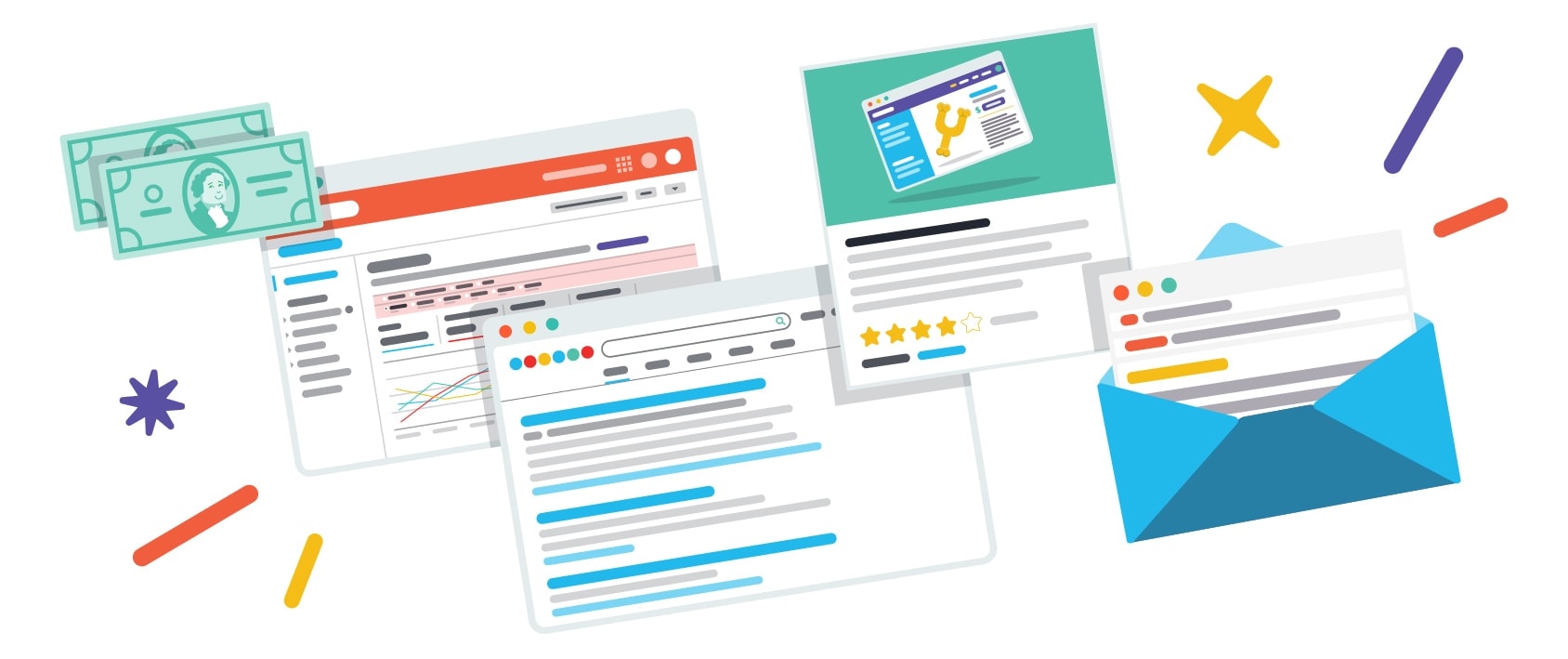
This checklist will provide a roadmap for you to locate the right ecommerce business at a price that fits your needs.
When you outline the details of each potential acquisition, you make the buying process much easier for yourself. This also helps to avoid wasting your time researching those that are not properly aligned with your business and personal goals.
1. Pricing Windows
The pricing window for any ecommerce business will help increase or decrease its valuation multiple, depending on which amount of time is used.
As mentioned above, most sellers will list their business with a three-, six-, or 12-month pricing window. All this means is how much data from the business’ sales history will be used to calculate the business multiple.
This check will give you an idea of how sustainable the business is and whether there have been any sudden upticks or drops in revenue, which would lead to the use of a lower pricing window.
A 12-month pricing window has become the gold standard for most ecommerce businesses, as it gives the most accurate breakdown during every season of the year. Not only will the pricing window help determine the business’ multiple, but the age of the business itself also plays a large role in moving the multiple needle.
2. Age of the Ecommerce Business
Many online business buyers will favor a business that has been established for several years over something still brand new. The reason is that an existing business will have built a record of sales and data—a huge advantage when it comes to buying an ecommerce business.
Making a product is straightforward, but creating a product and brand with longevity is the challenge. The longer a business has been around generating consistent revenue, the likelier it is that the products are not just another trend that will die out when the next peak season comes around, where a different in-demand product is all the rage.
3. Traffic Diversity
It is also important to note how diversified the traffic sources are for an ecommerce business. The more spread out these sources are, the more they mitigate the risk from any sudden drop in traffic and sales. The three most common sources of traffic for an ecommerce business include:
- Search engine optimization (SEO)
- Paid traffic
- Social traffic
One of the best parts of buying an established business is the marketing data you receive from these sources (if the previous owner set them up). It may not be necessary to use all three of these marketing channels—as many ecommerce owners may have only focused on one—however, it is important to diversify your traffic when possible. Spreading risk across multiple sources is a great strategy for mitigating risk; if one channel suddenly dies out, another source could have the potential to keep the business profitable.
When browsing through potential businesses, you should also find out where the traffic comes from. The main marketplace that generates the most traffic should always be the brand’s main market for sales.
- SEO: An ecommerce website might include a blog to generate Google search traffic. This is becoming more and more common, as once your content begins to rank, it requires little effort or cost to maintain. If a business relies heavily on SEO traffic, it is helpful to analyze which pages generate the most traffic and which sources make up the backlink profile. This ensures that the traffic is legitimate and that no type of blackhat technique has been used to grow the business.
- Paid Advertising: Google Ads and Facebook Ads are the most widely used forms of paid advertising in the world of PPC today. These traffic sources might be lucrative when optimized, but they can also dig into your profit margins if done incorrectly. Buying a business that already does paid advertising successfully can save you a ton of time and money, however, if a business isn’t using paid ads, then implementing them can bring almost instantaneous results. Gaining data insights into things like ad spend, cost-per-click, and conversion rates will help you scale the business further, already having a foundation to work with. This will show you how much room for improvement there might be and what has and has not been working so far.
- Social Media: We see ecommerce brands with a huge social media following sell in our marketplace all the time. Social media is a great way to diversify your traffic sources and gives you the ability to establish an addressable audience and set up retargeting ad campaigns. Social media can be added to an ecommerce business after the purchase, so it shouldn’t really make or break the deal ultimately, but it is a great extra asset to have if the right deal has built a large following on one or several social media platforms.
4. Customer Reviews and Ratings
When shopping for an ecommerce business, you want to make sure there are plenty of positive reviews for the products you are about to acquire. This is your social proof and product-to-market fit that will aid your decision in whether your newly acquired business will continue on this same track once you have taken over full ownership.
These reviews and ratings for products are important, as they help build the brand’s reputation and give new customers social proof of the quality your company provides. The more positive ratings and reviews a product line has, the higher the multiple for that business will be.
5. Email List
The untapped value for many ecommerce businesses on the market today is the email list.
Many ecommerce and Amazon FBA sellers alike have yet to utilize this excellent opportunity to monetize an email list. When done correctly, it can bring additional revenue to the business, with little effort required to set up.
If you take notice of a particular business that includes an email list, be sure to uncover the value in the list by checking to see if the current owner still sends out regular emails. You will definitely want to use any contact list or email campaigns a seller may already have set up, as they can be a large value-add to any business gaining this addressable audience already gathered for you.
Another component you may want to research is what the open rates and click-through rates are for this email list, as that may uncover hidden growth opportunities to optimize sales campaigns even further.
What to Look for in a Great Deal

Finding the right ecommerce business for you will be much easier when you have a proper due diligence checklist to help keep you focused on what you’re looking to acquire.
There are many factors to consider when performing your own due diligence on a potential acquisition—and it is also important to remember that due diligence is different from vetting.
Vetting is used to determine whether a business is priced correctly, while due diligence is based on the buyer’s personal needs for the business, based on a set of criteria they have already determined. Whether that happens to be a business with an email list including over 10,000 subscribers or most of the product traffic being produced organically in Google, every buyer will have their own criteria to follow.
There are many other details you need to look at during your due diligence, such as the following:
- How competitive is this niche’s industry?
- What is the business doing in terms of marketing?
- How many products does the brand include?
- What platform is the storefront built on?
- How much support will the seller offer?
- Have there been any stockout issues recently?
These are all great questions you should ask yourself while performing due diligence on a potential business opportunity. Not only will you uncover hidden growth avenues in doing so, but you will also eliminate businesses that don’t have your investment needs.
Which Ecommerce Business to Buy?
The specific ecommerce business you acquire will depend on your strategy in scaling the business once you take over full ownership. Are you looking for something passive and fairly hands-off? Or is a business where you roll up your sleeves and get your hands dirty during daily operations more your style?
The short answer to these questions will again be based on your business and personal goals. We often use our buyer personas as an example of all the types of online business buyers we meet in our marketplace:
- For some first-time buyers just starting out, they might fall under our category of being a Newbie Norm, who considers buying an online business to get them out of their current employment situation and escape the 9–5 grind.
- Another buyer persona we have is a Strategic Sally, who is a veteran in the online business space and is looking for a strategic acquisition to help boost their current product portfolio.
In these two examples alone, you can see obvious differences in the type of ecommerce business that each individual might be seeking. This goes to show why having a clear understanding of what you’re looking to achieve with your acquisition is important to render your success.
Where to Find Suitable Ecommerce Businesses
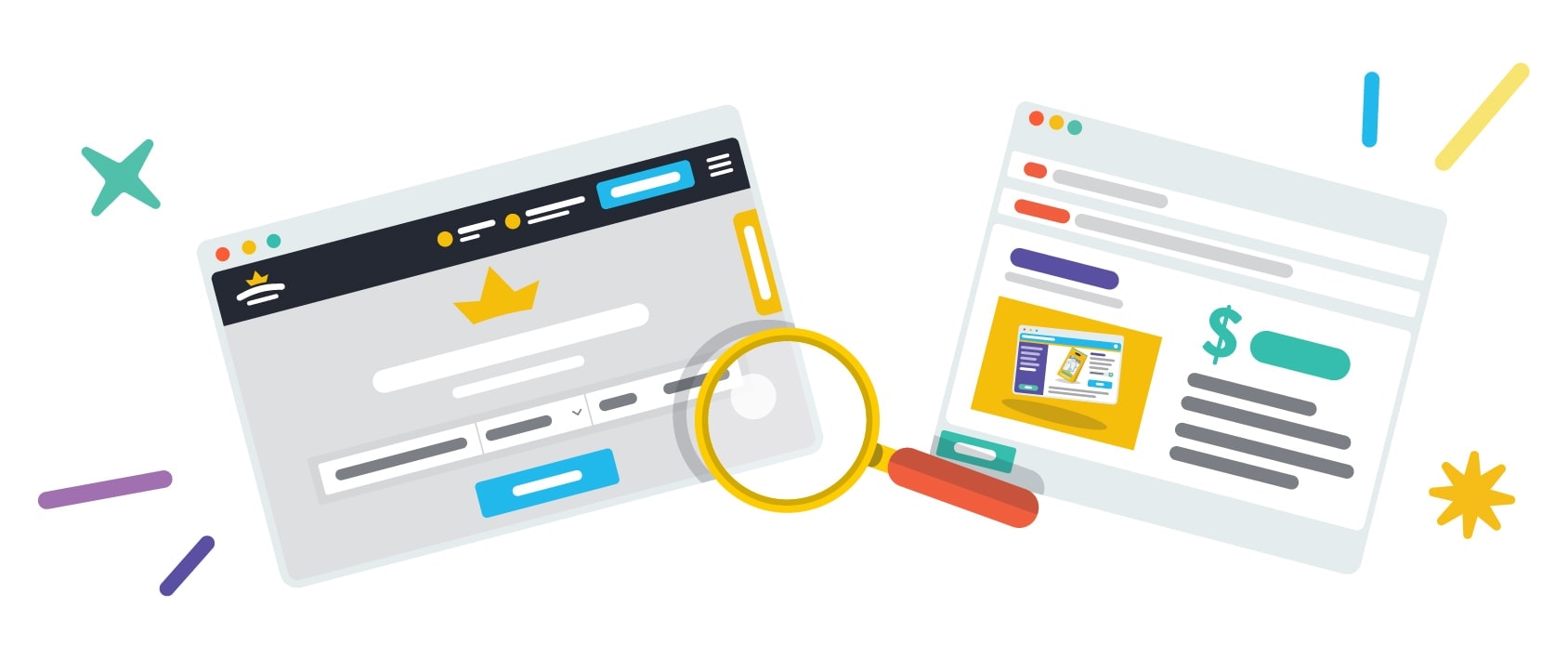
So now that you have a clear understanding of what initial checks are needed to speed up your due diligence process, where do we find these ecommerce businesses for sale in the first place?
When it comes to locating an ecommerce business for sale, you have one of two options. Your first option is to go with a broker who will present all the businesses currently live on the market in one easy-to-use platform (like the one Empire Flippers provides), or going with a private deal.
There are pros and cons to both of these options, so why don’t we detail these differences for you to help you better gauge which option is right for you?
How to Buy an Online Business Through a Private Deal
When looking for a private ecommerce acquisition, there are many things you need to keep in mind. For starters, performing a private deal is much riskier than, say, going with a broker to help you facilitate the deal from start to finish.
The biggest cons to performing this type of acquisition, however, is that you have no protection should the deal fall through. In some cases, you might send the funds for the business only to find out that the seller had forged all their income and expenses, and you realize the business is generating only a fraction of what you had originally been told.
There are only a select few reasons why buyers choose to perform a private deal, and this usually revolves around the fact that a broker charges a fee. A common misconception is that paying a broker fee means losing money in the deal, but paying more than a business is worth compared to similar assets live on the market can also end with the same results. What most people don’t realize is that this fee will often mitigate the risk of losing your entire investment completely.
How to Buy an Online Business Through Brokers
As mentioned above, most buyers new to the industry will talk down a broker’s fee before they have ever had a bad experience with a private deal. What most people don’t realize is that the broker is protecting both the buyer and seller should their agreement not align at any point during the acquisition process.
Leveraging a broker helps ensure the deal goes as smoothly as possible and that you, as the buyer, are not investing in some mocked-up scam. Brokers protect sellers by ensuring that they are not giving out all the inner workings of their two-year-old-plus project to someone who will go and copy your brand—or even worse, products—knowing who your suppliers are now.
Conclusion
If you are ready to take the next step in your entrepreneurial journey in securing a profitable ecommerce business already generating consistent cash flow, head over to our marketplace to create your free account. Once you have set up your account, you will have access to our marketplace with new ecommerce businesses listed for sale every Monday.
After reading this post, if you are still unsure where you should begin your search in locating the best ecommerce business for the right price, schedule a criteria call with one of our business advisors. They can walk you through the entire buying process to make sure you are properly prepared to find the perfect ecommerce business that suits your business and personal goals at the same time.



